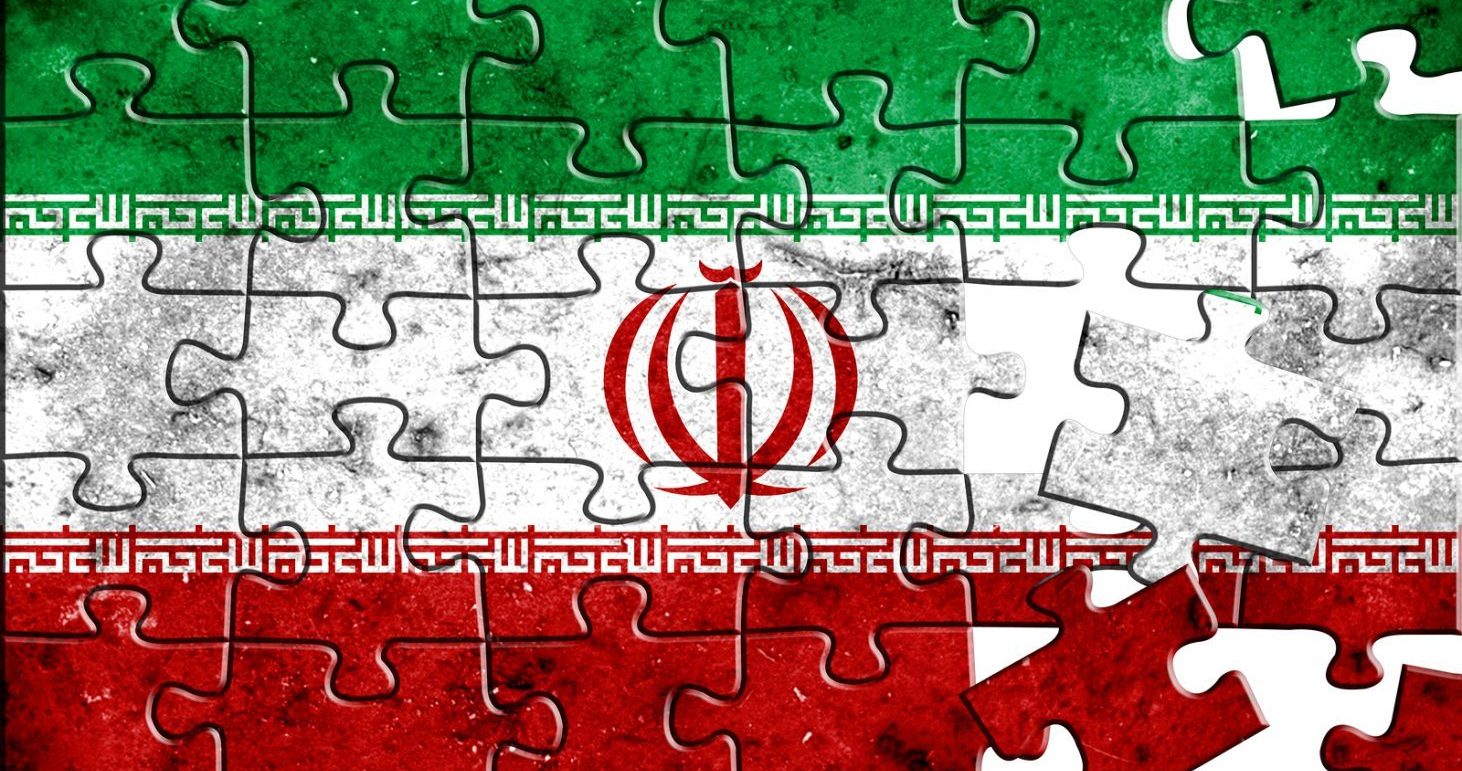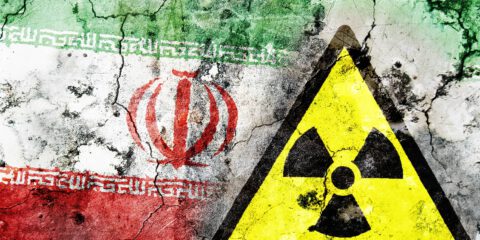Given the bad nuclear deal signed with Iran, Israel must be diligent about risk management; no matter how relentless intelligence gathering efforts are, not all threats can be countered. Israel will not allow enemy states to go nuclear.
Israel’s confirmation this week that it was the one to destroy a suspected nuclear reactor in the Deir ez-Zor region in eastern Syria in 2007 has dominated the news cycle and social media since Wednesday, when the relevant documents were declassified.
This achievement cannot be trivialized. It was a unique intelligence and military feat that significantly contributed to Israel’s security.
Nuclear weapons can be manufactured in two ways: The first is using uranium, which requires building large enrichment facilities and installing centrifuges, similar to what Iran is doing; the second is using plutonium, which requires building a nuclear reactor, which is what Syrian President Bashar Assad decided to do.
Israel has faced four challenges with respect to enemy states pursuing nuclear programs, vis-à-vis Iraq, Iran, Libya and Syria.
The first challenge presented itself in the early 1980s, when Israel learned that Saddam Hussein, the ruthless dictator ruling Iraq, had obtained a nuclear reactor from France. Intelligence suggested the Iraqi reactor under construction 17 kilometers (11 miles) southeast of Baghdad, was meant for the production of weapons-grade plutonium, which left little doubt that Iraq was trying to develop nuclear weapons.
Then-Prime Minister Menachem Begin introduced what would later be known as the Begin doctrine, namely that Israel would not allow nations that aspire to destroy it to develop nuclear weapon-production abilities. This led to Operation Opera on June 7, 1981, in which the Israeli Air Force destroyed the Iraqi reactor.
The Begin doctrine has been repeatedly put to the test ever since.
The second challenge presented itself in 1995, when Israeli intelligence detected an Iranian effort to develop uranium enrichment capabilities. Soon after, it was discovered that Iran was pursuing a complete fuel cycle, from producing natural uranium to enriching it into a military-grade material.
Israel attempted to curtail Iran’s efforts, to some success, while it began pushing the international community, led by the United States to impose financial sanctions on Iran. After years of crippling sanctions – and against the Islamic republic’s professed policies and worldview – in late 2013, Iran finally agreed to hold nuclear negotiations with the West.
The negotiations were officially led by the P5+1, or the U.S., Britain, France, Russia and China – the five permanent members of the U.N. Security Council – and Germany, but in reality, Washington took the lead on both imposing sanctions and hammering out the nuclear deal, whose outline was inked in 2015.
The parties essentially agreed that Iran would suspend its nuclear pursuits for a period of 10 to 15 years, after which it would be able to resume its uranium enrichment efforts, and it placed no limitations on Tehran’s ballistic missile program.
U.S. President Donald Trump, who has repeatedly called the agreement “the worst deal ever,” has urged the European signatories to revise it, warning that otherwise, the U.S. would walk away from the landmark agreement this May, when he’ll either waive new sanctions, thus extending the deal, or allow them to go forward.
Under the Iran Nuclear Agreement Review Act, the administration is required to notify Congress every 90 days whether Iran is living up to the stipulations of the deal. Trump did so in January, but he also imposed a 120-day deadline for Congress and America’s European allies to revise the deal, saying that otherwise, the U.S. will exit the pact.
The fact that the fate of the nuclear deal hangs in the balance means that the Iranian challenge is still here, and its complexity and intensity will likely be made clearer in the not-so-far future.
The third challenge was one that Israel did not really know it had. In the early 2000s, British and U.S. intelligence discovered that then-Libyan leader Moammar Gadhafi had secretly developed uranium enrichment capabilities ahead of potentially developing nuclear weapons.
London and Washington launched clandestine negotiations with Tripoli in 2003, resulting in the dismantling of Gadhafi’s nuclear program later that year. Israel only learned of these efforts after the fact, like the rest of the world.
One can only imagine if in October 2011, in the final days of his regime, Gadhafi wondered whether, were he still in possession of the nuclear abilities that he essentially relinquished in exchange for nothing, it would have prevented the NATO-led coalition from launching the military intervention which ended his 34-year rule.
The third challenge presented itself in 2007 when Israel learned that Syria, its neighbor to the north, was in the midst of building a plutonium nuclear reactor, based on North Korean technology.
The decision in Israel was clear – apply the Begin doctrine for the second time. And so, on the night of Sept. 6, 2007, in what was code-named Operation Arizona, eight F-15 fighter jets targeted the Al-Kubar nuclear reactor, near Deir ez-Zor, razing it to the ground.
These events, which span nearly 40 years, teach us some valuable lessons, most notably that, given the opportunity, knowledge and capability, the other players in the Middle East will not pass up the chance to develop nuclear weapons.
The immediate example for that was seen soon after the Obama administration struck its bad deal with Iran, when Saudi Arabia announced that it plans to exercise its right to enrich uranium. Going forward, Riyadh may seek to develop its own military-grade nuclear abilities to counteract Iran’s capabilities.
Similar, albeit not as explicit voices have been heard in Egypt, and no one will be surprised if other Middle East nations seek to create their own nuclear umbrella, especially given the threat posed by Iran. Moreover, possessing such weapons, or at least the ability to produce them, may become a threshold requirement for any regional player that wants to be taken seriously.
Nuclear pursuits are large-scale projects requiring multileveled systems, but in at least two cases – in Libya and Syria – Israeli intelligence was unable to detect these nuclear efforts. In Libya, it was because Tripoli was outside its scope of attention and in Syria, it was despite the fact that it was in the center of attention.
This means that there are no guarantees that future efforts could be detected. Intelligence efforts, be they Israeli or global, are inherently imperfect. There is never any way of telling where the missing pieces of the puzzle are hiding. Intelligence gathering will forever lack abundant resources and quality personnel, which is why it is essential that better intelligence-gathering techniques are developed and employed and why intelligence officers must always remain humble.
Furthermore, Israel cannot rely on its allies – including its biggest friend, the United States, even under a sympathetic administration – to neutralize such threats on its behalf. Israel must develop independent capabilities to neutralize its enemies’ efforts to acquire nuclear capabilities and it must hone these abilities, for it is difficult to know exactly when we will need to call upon them.
Another lesson to be learned here lies with the understanding that Israel must be able to defend itself by itself is reinforced by every such event. This comes with a price and there must be a willingness to pay it.
Perhaps the final lesson pertains to the quality of the decision-making process. The decisions taken by Begin and Olmert followed lengthy, thorough deliberations and boiled down to a clear-cut decision made, at least in Begin’s case, in the face of boisterous opposition.
Israel is a small state facing multiple threats and it must always re-evaluate how to preserve and exercise the Begin doctrine. This requires attention and prudence, but it also requires a solid and determined decision-making apparatus.
Published in Israel Hayom 23.3.201
JISS Policy Papers are published through the generosity of the Greg Rosshandler Family.
photo: Bigstock









 - בניית אתרים
- בניית אתרים